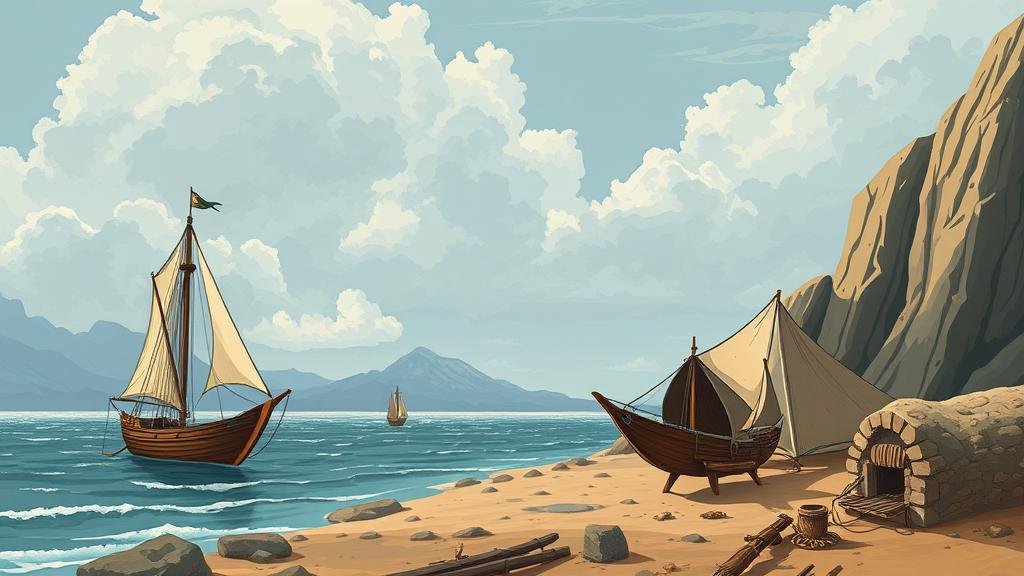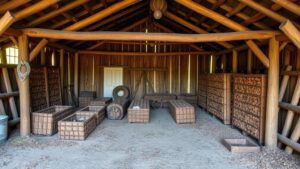Researching Historical Expeditions to Rediscover Lost Treasures
Introduction
The concept of lost treasures has captivated the imagination of adventurers and historians alike for centuries. Historical expeditions aimed at rediscovering these treasures are not merely quests for wealth but represent significant cultural and historical endeavors. Treasures, whether in the form of artifacts, gold, or cultural heritage, can shed light on the societies that created them. This article explores the methodologies, implications, and notable examples of expeditions dedicated to the rediscovery of historical treasures.
Historical Context of Lost Treasures
Throughout history, numerous treasures have been lost due to war, natural disasters, or expeditions that never returned. These events provide a rich backdrop for research into historical expeditions. For example:
- The sunken treasures of the Spanish galleons lost during the 17th century.
- The fate of the Ark of the Covenant, which has been sought after for millennia.
As such contexts enrich the understanding of why these treasures hold such significance, they lay the groundwork for modern research pursuits in treasure rediscovery.
Methodologies in Historical Research
Researching historical expeditions requires a multifaceted approach, incorporating various methodologies:
- Archival Research: Investigating historical documents, letters, and maps can provide guidance on treasure locations.
- Field Studies: Engaging in archaeological excavations and underwater surveys to uncover artifacts.
- Technological Utilization: Employing advanced technologies like sonar, ground-penetrating radar, and 3D scanning enhances discovery efforts.
Case Study: The Atocha Wreck
The 1622 wreck of the Spanish galleon Nuestra Señora de Atocha off the coast of Florida is a notable case study. After numerous failed recovery attempts, in 1985, treasure hunter Mel Fisher located the wreck, unearthing over $400 million in gold, silver, and emeralds. This case exemplifies the importance of combining archival research with technological advances, as Fisher and his team utilized underwater metal detectors and sonar mapping to pinpoint the wreckage.
Implications of Rediscovering Treasures
The implications of rediscovering lost treasures are vast, impacting various aspects of historical knowledge, cultural heritage, and economics:
- Cultural Significance: Treasures often embody the history, art, and beliefs of their time, providing invaluable insight into past civilizations.
- Economic Impact: Discovery can lead to profitable tourism opportunities, as seen with the Atocha treasure.
- Legal and Ethical Considerations: The finders’ rights and the moral ramifications of excavating sites of potential historical importance must be addressed.
Legal Framework and Ethical Concerns
The quest for lost treasures also raises significant ethical dilemmas. Legislation like the UNESCO Convention on the Means of Prohibiting and Preventing the Illicit Import, Export, and Transfer of Ownership of Cultural Property sets standards for how artifacts should be handled. Protecting cultural heritage versus individual property rights remains a contentious debate in the field.
Conclusion
Researching historical expeditions to rediscover lost treasures is an interdisciplinary field that fuses archaeology, history, and technology. By understanding the context of lost treasures, employing diverse research methodologies, and recognizing the implications of rediscovery, we can enrich our understanding of human history. As treasure hunters of the past continue to inspire modern expeditions, it is imperative that future endeavors are pursued with a commitment to ethical considerations and cultural sensitivity.
Actionable Takeaways
- Engage in local historical societies to learn about regional lost treasures.
- Consider volunteering for archaeological digs or expeditions to gain practical experience.
- Stay informed on legal frameworks governing cultural heritage in your area.



